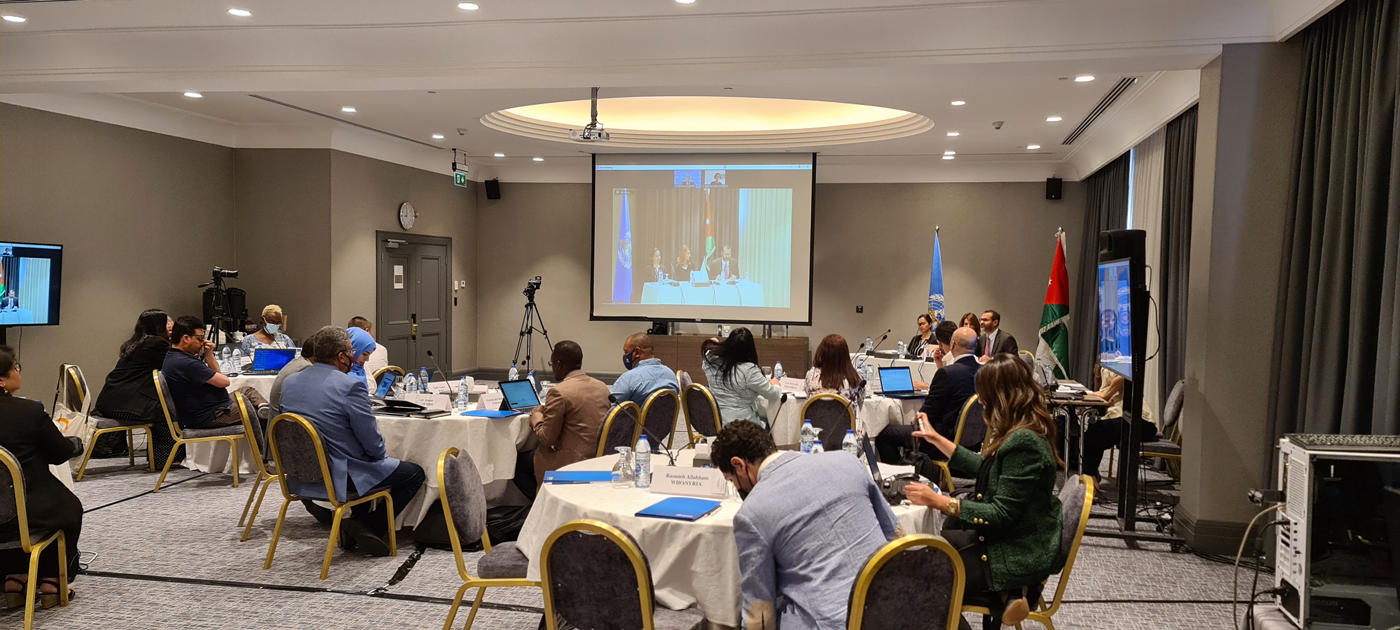 Participants share experience and discuss effective management of the PIP Framework Partnership Contribution mechanism in the Region. Amman, 3 August 2022 – Focal points for Pandemic Influenza Preparedness (PIP) Framework implementation in 10 priority countries of the Region met in person for the first time since COVID-19 restrictions have eased.
Participants share experience and discuss effective management of the PIP Framework Partnership Contribution mechanism in the Region. Amman, 3 August 2022 – Focal points for Pandemic Influenza Preparedness (PIP) Framework implementation in 10 priority countries of the Region met in person for the first time since COVID-19 restrictions have eased.
WHO organized the annual regional meeting in Amman, Jordan, from 24 to 26 May to ensure stronger and more impactful influenza surveillance and pandemic preparedness in the Region.
The meeting concluded that effective management, integration and multisectoral action are all essential elements to better achieving preparedness and response for the next influenza pandemic. Technical and programme management staff from WHO country offices in the Region, the WHO Regional Office, the PIP Secretariat and other experts attended the meeting.
Participants discussed experiences from the field and the main challenges and lessons learned during the COVID-19 pandemic.
They were also introduced to developments in the areas of laboratory and the surveillance burden of disease, regulatory capacity, planning for deployment of pandemic response supplies and influenza preparedness planning. In addition, participants also discussed the concept of project management and effectively managing PIP activities, meeting global indicators, reporting on milestones, managing budgets and making the impact of implementing the PIP Framework more visible.
This event was part of a series of management meetings to enhance implementation and initiate planning for the PIP Framework's Partnership Contribution High-Level Implementation Plan III, which will outline the strategy for strengthening global and regional pandemic influenza preparedness from 2024 to 2030.
The PIP Framework was adopted in 2011 by the World Health Assembly as a unique public-private partnership that aims to improve preparedness and response for the next influenza pandemic. The Framework’s 3 major components are virus sharing, benefit sharing and governance. It aims to ensure that the international response to pandemic influenza is rapid, flexible, effective and equitable. Thus, 70% of PIP Partnership Contribution funding is allocated to enhancing preparedness among low- and middle-income countries.
There are 10 countries in the Region that benefit from the PIP Partnership Contribution mechanism, namely, Afghanistan, Egypt, Iraq, Jordan, Lebanon, Morocco, Somalia, Sudan, Syria and Yemen.




